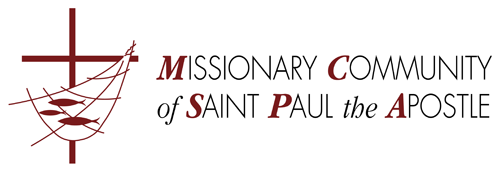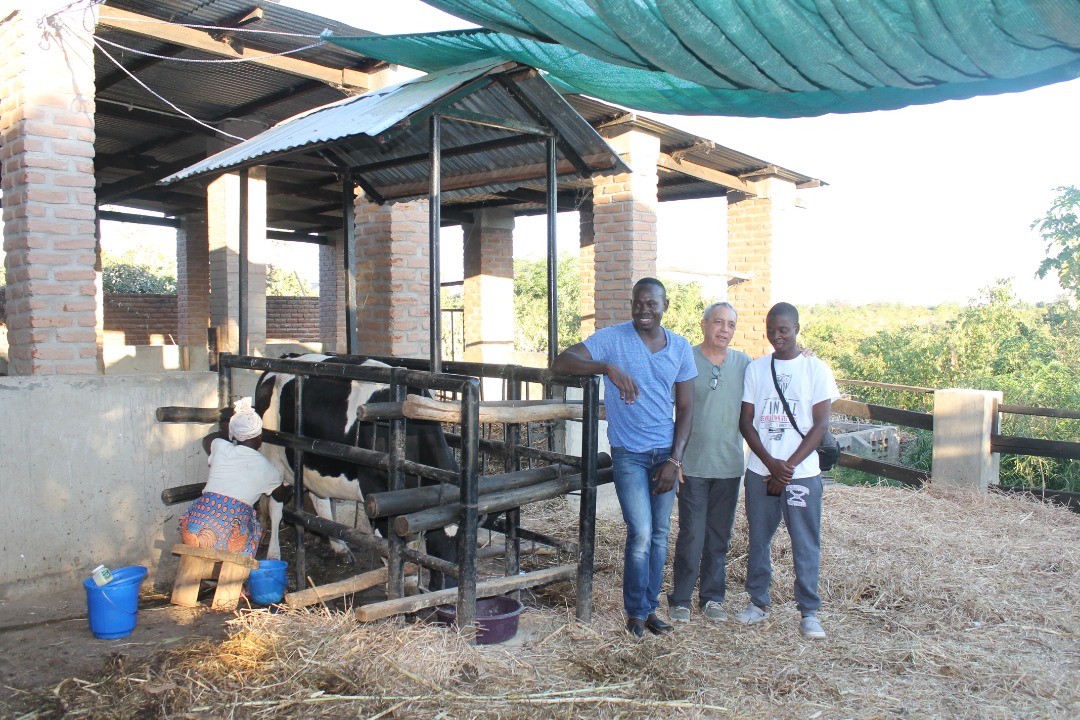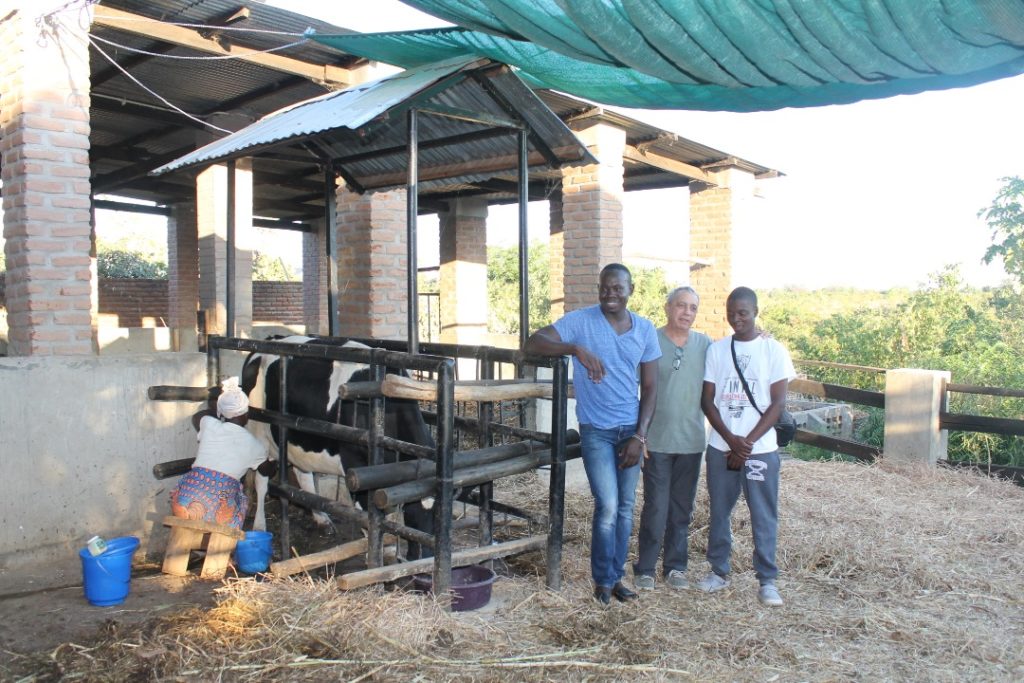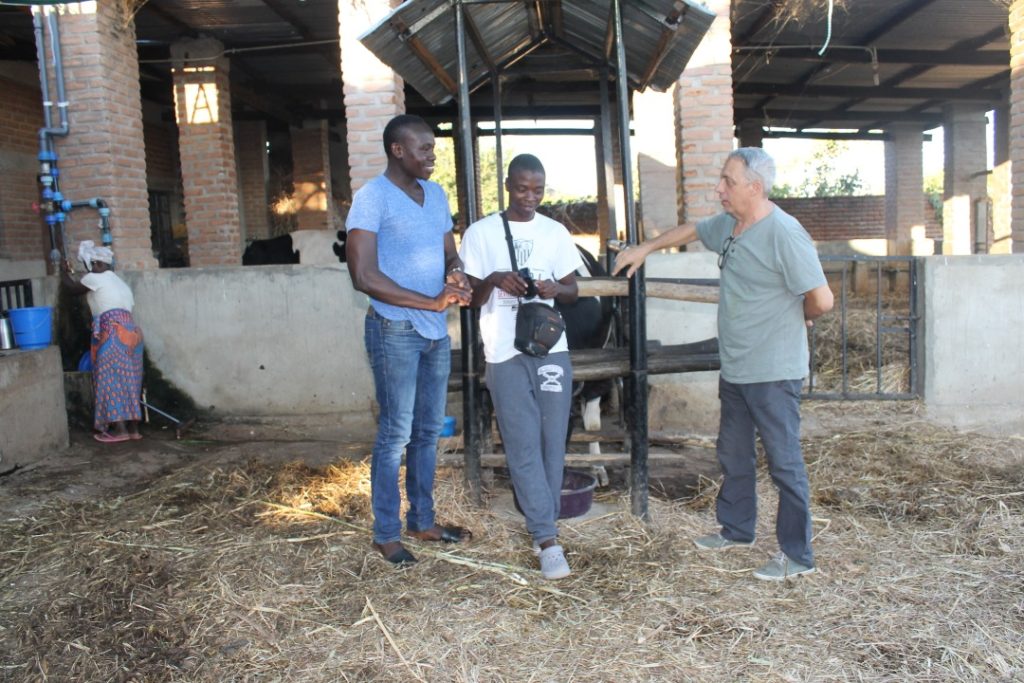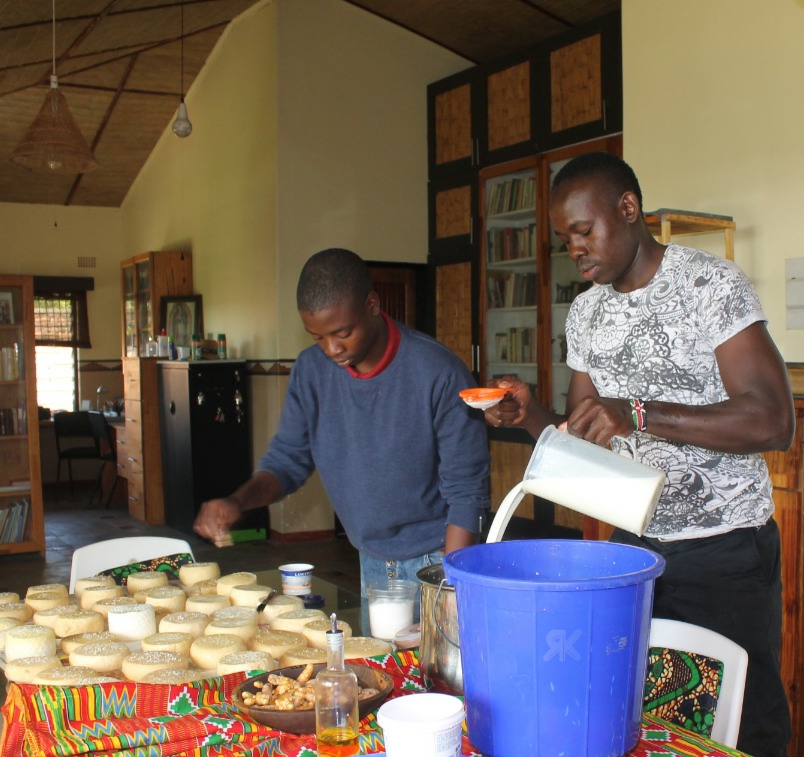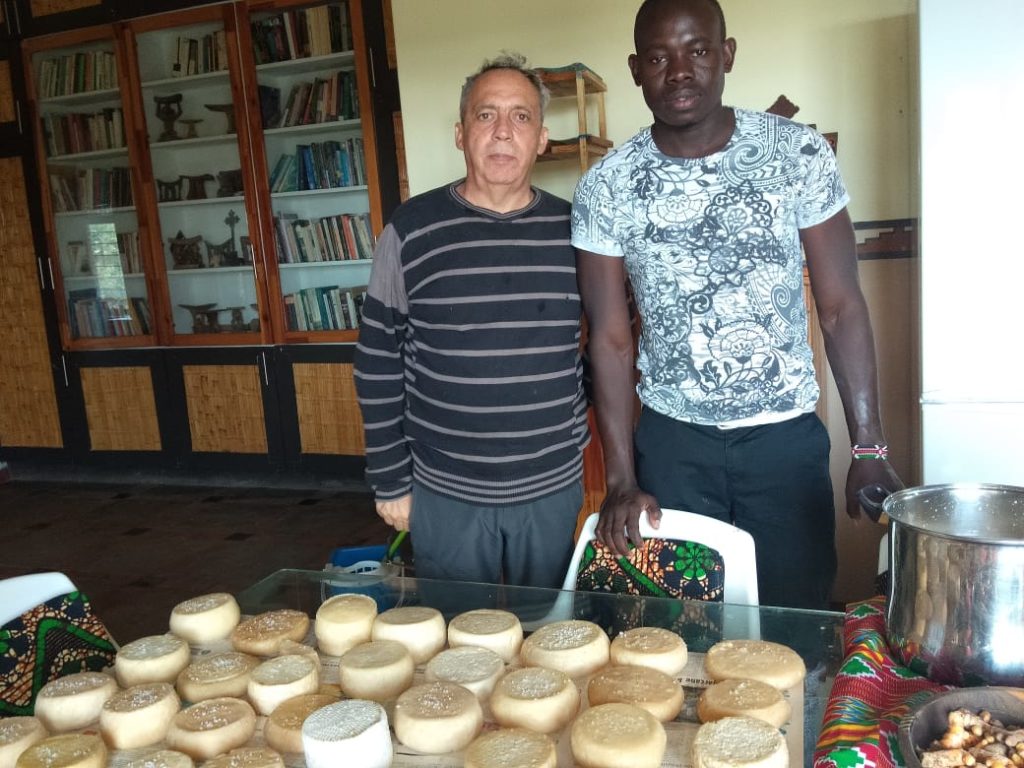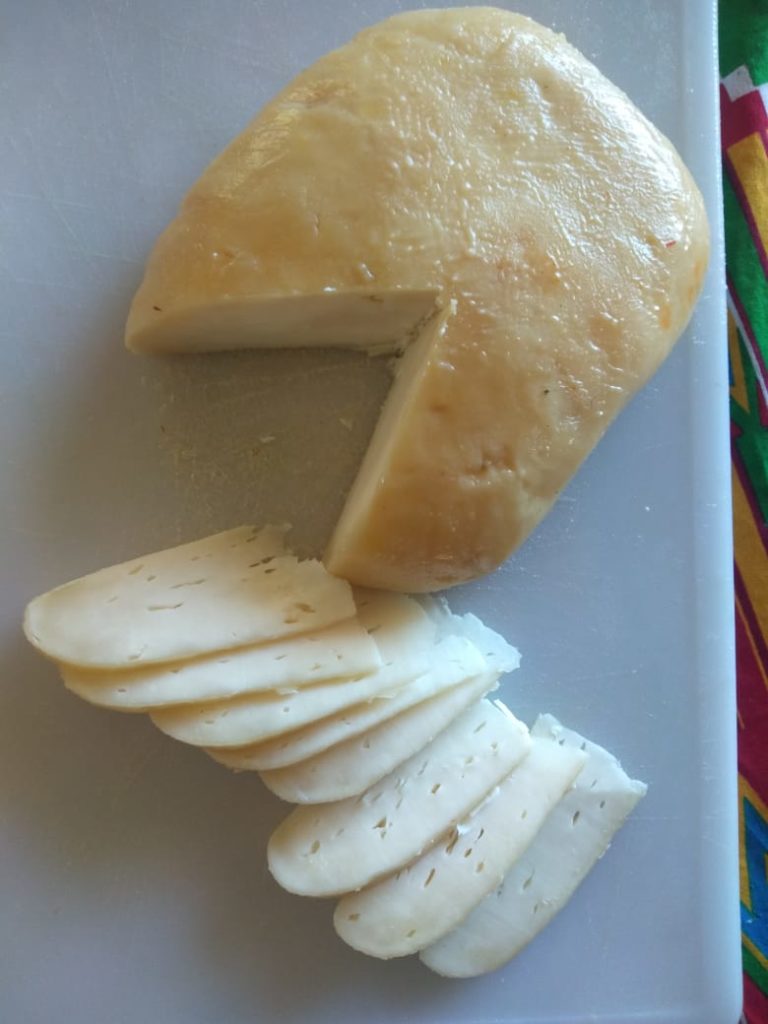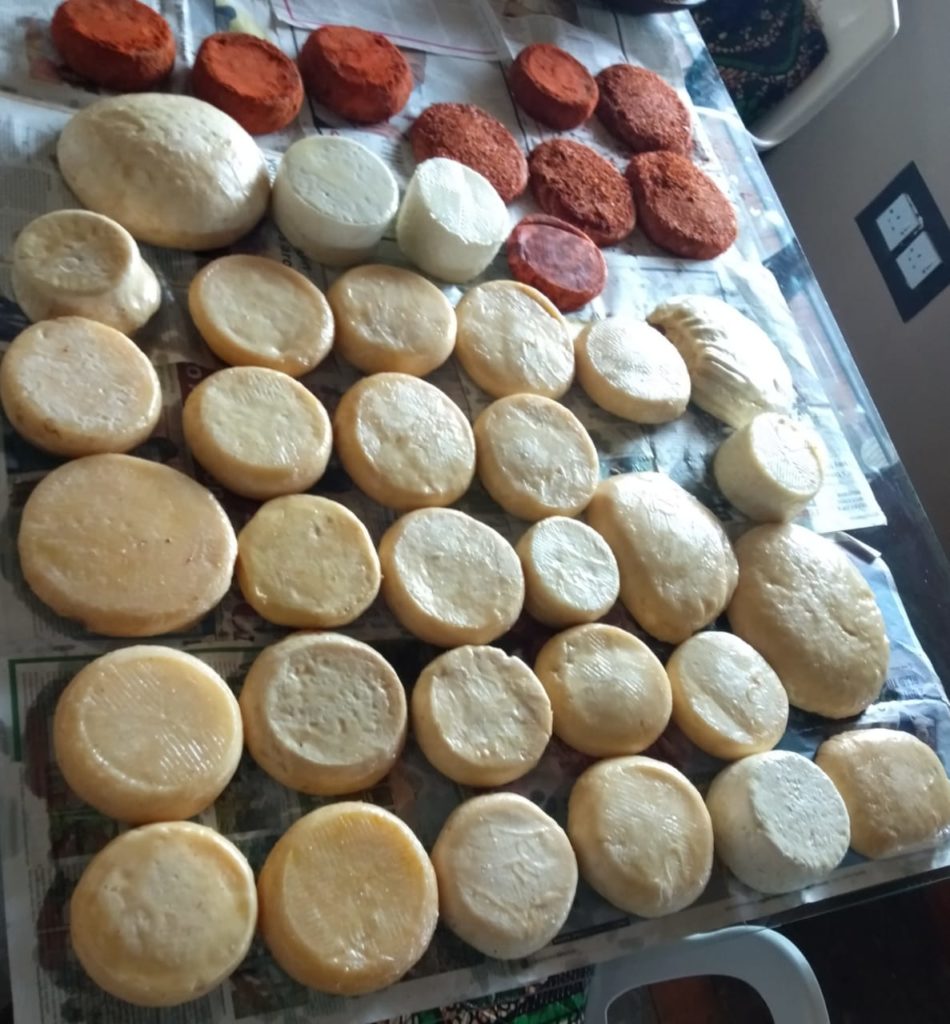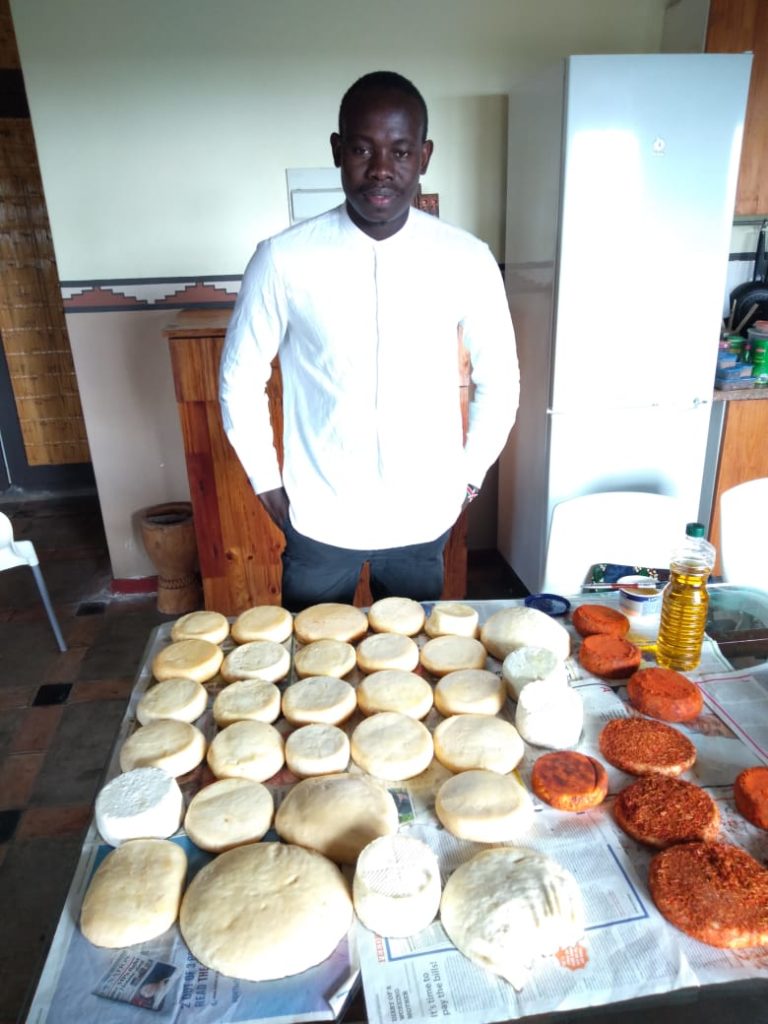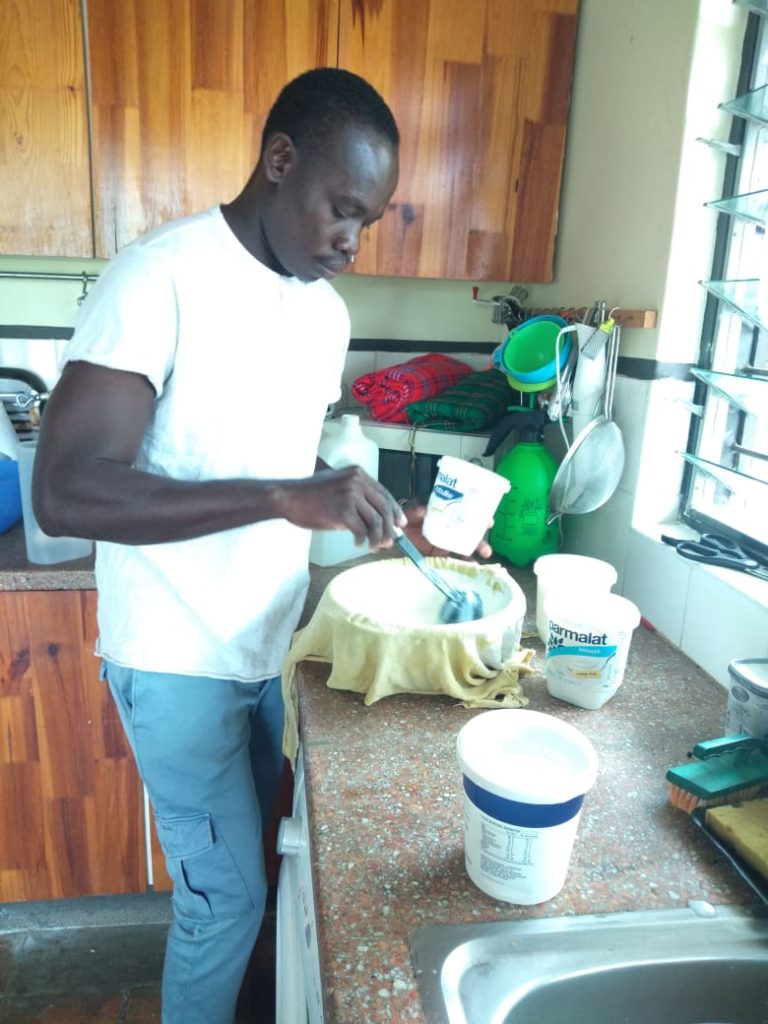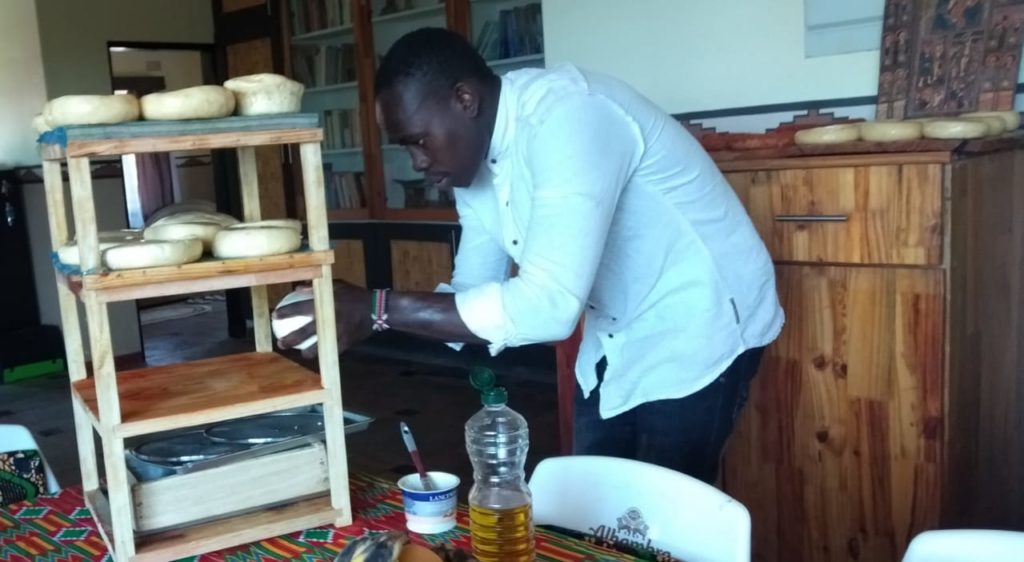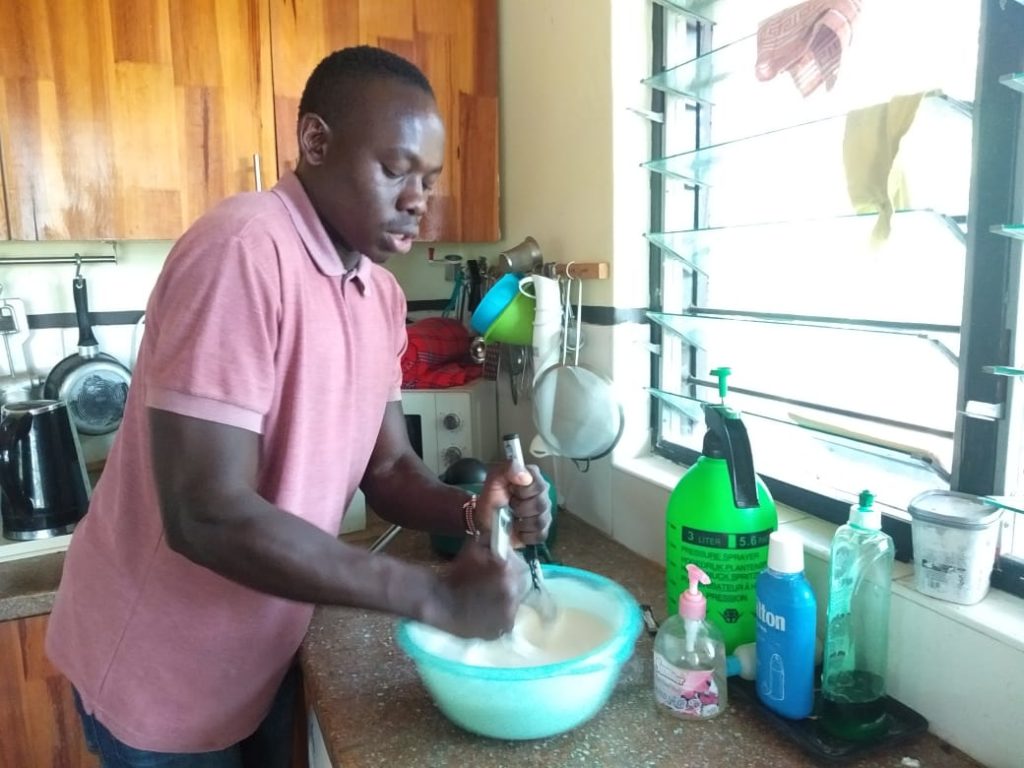Now that COVID-19 has forced so many to be locked down, we, in Malawi, are no different. The seminary where we study in Balaka closed and we had to go to stay at the mission in Benga. Another colleague and I asked Fr. Fernando and Fr. Steven to teach us how to make cheese. They happily accepted and agreed to teach us that very evening. Being a doubtful person, I was somehow hesitant but decided to give it a try. I am happy to confirm that it has been for me a learning experience helping me to be more determined to explore what my talents are and not being afraid to fail because it is through trial and error that we learn and move forward.
This is how this time of uncertainty for many has become a moment for reaffirmation for me and my colleague Sylvester, a “come and see” who has been at Benga Mission for the last six months. Processing the milk of the mission cows into various types of cheese, yoghurt, and cream has been an opportunity for us to grow personally as missionaries in the making as well as to contribute to the wellbeing of our community. This has helped us to learn that our mission should not be deterred by setbacks or difficulties but, on the contrary, it is precisely the setbacks and difficulties that can enhance our missionary drive. Because it is when we reach out and empty ourselves that the Holy Spirit, the Paraclete, fill us with its love and helping us to achieve extraordinary things in spite of us being ordinary beings. I must acknowledge, that I was gladly surprised to see the joy of His Grace Archbishop Ziyaye when we took cheese to him at his residence at Maula, Lilongwe.
Being missionaries in the making, this experience has taught us that it is through little things that greater things can be achieved. The patroness of the Missions Teresa of Liseux, advocated for doing little thing with great love and this is truly what mission is about.
Some other lessons we have learn that cheese making is not just an activity but a craft. The lactic bacteria used to do cheese, often called “starter cultures” play a key lowering lactose’s PH turning it into a place not suitable for spoiling organisms and what can later be, or not, a delicious and nutritious cheese. In our case we are still learning and hope that with time and humility we might improve and turn cheese making from an activity into a craft.
Another lesson milk processing has taught us is that hygiene, time management and patience play a key role in its success. We still wonder how a negative thing like the COVID19 has taught us a lesson that we will be with us forever.
Having done the cheese for 37 days has also help us to have some practical lessons, which we here share with you.
a. Average milk production from our two milling cows is 18 liters per day
b. We make 2 cheeses of 350g each from 9 liters of milk.
c. We drink 7 liter of milk daily in our community house of 20 people.
d. We share also them milk with our 4 workers to get 2 liters daily.
It is our hope that this activity will help us in the future to make our mission station sustainable and help us to improve the nutrition of people in the area who have a deficit protein intake.
Bernard Okuku, apprentice MCSPA
